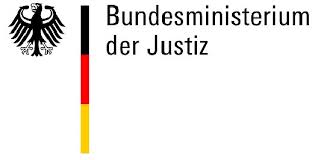Politics
The federal Government favours curtailing auditor mandates
 The Ministry of Justice and Consumer Protection has tabled a draft measure for aligning the commercial and company laws concerning auditors with European directives.
The Ministry of Justice and Consumer Protection has tabled a draft measure for aligning the commercial and company laws concerning auditors with European directives.
European directives demand that auditors follow an external rotation system, and no mandate may grant any auditor more than 10 years, the mandatory auditor rotation period. If on June 16 an auditor’s mandate is for fewer than 11 successive years, the incumbent auditor may only be confirmed until the expiry date of the mandatory auditor rotation period. The deadline for conversion into national law is 17 June 2016. Member States have the right to shorten the mandatory rotation period or, in certain circumstances allow Public Interest Entities to extend the rotation period to a maximum of 20 years if a public tender takes place on expiry of the 10 year period or 24 years where a joint auditor is appointed. The draft tabled by the German Ministry of Justice ensures that the option rights granted by Brussels be guaranteed at national level thus making the full scope of the legislation available as widely as possible.
RWE crisis deepens
 According to Peter Terium head of the RWE group, 17 of their 20 coal-fired power stations fulfil liability conditions for payment of the duty set by the German Ministry of the Economy for old coal-fired power stations. Introduction of this duty would almost inevitably lead to their immediate closure. The Essen-based group is Germany’s largest producer of coal-fired, environment-hostile energy. The share price is conditioned by this pressure, revenue accrued in companies of this kind are plummeting and such a fiscal millstone increasingly discourages any investment for conversion towards renewable energy. “The industry framework for the traditional production of electricity is deteriorating at such a rate that the group is finding it hard to respond adequately” remarked the CEO during the AGM of April 23. Another item for discussion was the call for an increase in share capital and the amount of the dividend. Apparently, the state fund of the Emirate of Abu Dhabi has announced its intention to purchase 10 percent of the German energy colossus, which would reduce the quota held by municipalities to less than 20 percent because of their inability to contribute fresh capital. This would cost them not only a seat on the Supervisory Board but also the fiscal benefits they enjoy as regards dividends. In conclusion, the present chair of the Supervisory Board has announced his intention to resign next year.
According to Peter Terium head of the RWE group, 17 of their 20 coal-fired power stations fulfil liability conditions for payment of the duty set by the German Ministry of the Economy for old coal-fired power stations. Introduction of this duty would almost inevitably lead to their immediate closure. The Essen-based group is Germany’s largest producer of coal-fired, environment-hostile energy. The share price is conditioned by this pressure, revenue accrued in companies of this kind are plummeting and such a fiscal millstone increasingly discourages any investment for conversion towards renewable energy. “The industry framework for the traditional production of electricity is deteriorating at such a rate that the group is finding it hard to respond adequately” remarked the CEO during the AGM of April 23. Another item for discussion was the call for an increase in share capital and the amount of the dividend. Apparently, the state fund of the Emirate of Abu Dhabi has announced its intention to purchase 10 percent of the German energy colossus, which would reduce the quota held by municipalities to less than 20 percent because of their inability to contribute fresh capital. This would cost them not only a seat on the Supervisory Board but also the fiscal benefits they enjoy as regards dividends. In conclusion, the present chair of the Supervisory Board has announced his intention to resign next year.















